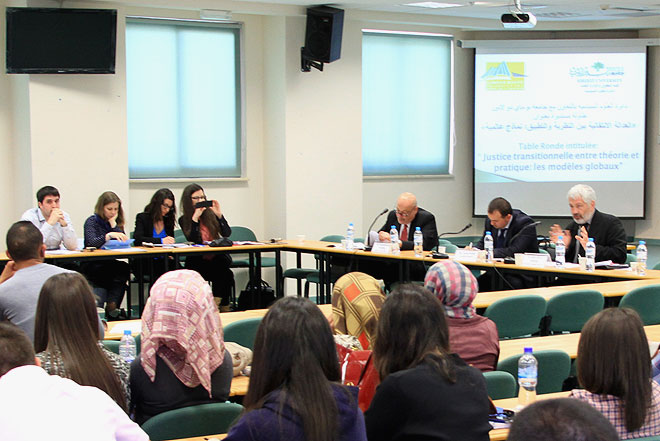Roundtable Engages Global Models of Transitional Justice
A roundtable shedding light on the theoretical roots of the transitional justice concept and its challenges was held on April 5, 2014 by the Birzeit University Faculty of Law and Public Administration’s Political Science Department in cooperation with Institut d' nScience Department in 4 .
Opening the event, Faculty Dean Asem Khalil emphasized the importance of such intellectual dialogues, especially in light of the transformations taking place in various Arab countries.
Institut d'études politiques de Paris public law professor Jean-Pierre Macias offered a conceptual and theoretical analysis of transitional justice and the problems that exist between theory and practice.
Macias stressed the need to revive the concept of human dignity. "We cannot consider transitional justice a special form of justice,” he said, “but it should be considered as a form of national reconciliation, and adapt justice in a manner that suits communities passing through a stage of transformation that followed an era of human rights violations. "
The roundtable’s closing presentation was by Lord Habash who argued that the application of transitional justice is the most important challenge encountering a number of countries in the world that have emerged from stages of silence and bloodshed, as a result of dictatorial practices and armed conflict that negatively impacted citizens politically, economically and socially.







